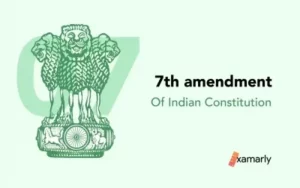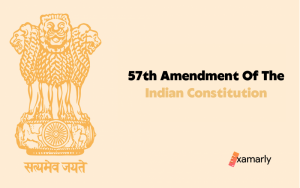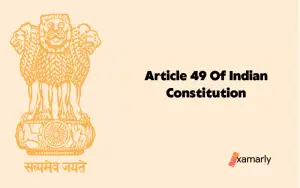Are you preparing for the prestigious UPSC exams? Are you looking for the highly recommended booklist for UPSC by toppers?
Toppers of the UPSC exams are considered to be the ultimate authorities when it comes to preparing for the exams, and what they read is of great significance.
In this article, we bring you the top “booklist for UPSC by toppers” which is guaranteed to provide you with the best foundation for your preparation.
This curated list of books has been handpicked by UPSC toppers and covers all the essential topics you need to master.
So, gear up, grab a pen and paper, and get ready to take notes as we bring you the most comprehensive booklist for UPSC by toppers.
- How Standard Books Help You to Crack UPSC Effectively?
- Booklist for UPSC by Toppers
- Detailed Analysis of NCERTs & Other Important Books
- Brief Analysis of Important Booklist for UPSC
- Indian Polity by M.Lakshmikanth
- Indian Economy by Ramesh Singh
- History of Modern India by Bipan Chandra
- Ethics, Integrity, and Aptitude by Subba Rao
- Environmental Ecology and Biodiversity by Shankar IAS Academy
- Importance Of Following Good UPSC Books
- Closing Thoughts
- Frequently Asked Questions
- What is the recommended booklist for UPSC preparation by toppers?
- Can you suggest a comprehensive booklist for UPSC by toppers?
- Is there a standardized booklist for UPSC by toppers?
- What are the best books for UPSC preparation according to toppers?
- Can you recommend some must-read books for UPSC by toppers?
- How do toppers prepare for UPSC exams?
- Is NCERT enough for UPSC preparation according to toppers?
- Can you suggest some additional books for UPSC preparation besides NCERT?
How Standard Books Help You to Crack UPSC Effectively?
The Union Public Service Commission (UPSC) exams are known to be one of the toughest and most competitive exams in India.
Cracking the UPSC exams requires a lot of hard work, dedication, and, most importantly, the right study materials. One of the key ingredients of a successful UPSC preparation is a well-structured study plan that includes the right books.
Standard books play a critical role in helping you crack the UPSC exams effectively. Here are a few ways standard books can help you achieve your goal:
- Provide comprehensive coverage of the syllabus: The UPSC syllabus is vast and covers a wide range of topics. Standard books provide comprehensive coverage of the entire syllabus and ensure that you have a clear understanding of all the important concepts and theories.
- Offer in-depth analysis and explanations: Standard books are written by experts in their respective fields and offer in-depth analysis and explanations of the topics covered in the syllabus. This helps you understand the concepts better and retain the information for a longer period.
- Provide practice material: Standard books also provide a wealth of practice material, including sample papers, mock tests, and previous year question papers. This helps you to test your knowledge and evaluate your preparation level.
- Give you a solid foundation: By reading standard books, you can develop a strong foundation of knowledge that is essential for cracking the UPSC exams. This foundation will help you to approach the exams with confidence and tackle even the toughest questions.
In conclusion, standard books are an essential component of successful UPSC preparation. By incorporating them into your study plan, you can increase your chances of cracking the exams effectively and achieve your goal of becoming a civil servant.
Booklist for UPSC by Toppers
“What books do I need for proper exam preparation ?” “How many books are enough?” “Is there any standard book?” These are the questions that come to every aspirant’s mind irrespective of which exam they are preparing for!
When it comes to UPSC CSE, you may find yourself confused because it is not always easy to choose the right books with a proper plan. The truth is “too many books” won’t help you much because it confuses you and will make you feel distraught while taking any decision.
When it comes to that, who better to turn to than the toppers?! So after careful consideration and recommendations, we have curated a solid booklist for UPSC by toppers in this article so you don’t have to waste precious time looking for the right one!
Important Books to Read As a UPSC Aspirant
As a UPSC aspirant, you need to read a variety of books that will provide you with the knowledge and skills necessary to crack the exams.
The exact books you need to read will depend on the specific stage of your preparation and the subjects you are focusing on. However, here are some books that are considered important for all UPSC aspirants:
- NCERT textbooks: NCERT textbooks form the cornerstone of UPSC preparation. They provide a comprehensive overview of the subjects covered in the syllabus and are essential for building a solid foundation of knowledge.
- Indian Polity by Laxmikanth: This book is considered a must-read for all UPSC aspirants and provides a comprehensive understanding of the political system of India, including the Constitution, the Parliament, and the judiciary.
- Indian Economy by Ramesh Singh: This book provides a comprehensive understanding of the Indian economy and is an essential resource for preparing for the economics-related sections of the UPSC exams.
- History of Modern India by Bipan Chandra: This book provides a comprehensive overview of the modern history of India, including the independence movement and the development of the country post-independence.
- The Hindu newspaper: The Hindu newspaper is considered one of the best sources for staying up-to-date on current events and is an important resource for preparing for the current affairs section of the UPSC exams.
- Ethics, Integrity, and Aptitude by Subba Rao: This book provides a comprehensive overview of ethics, integrity, and aptitude, which are important components of the UPSC exams.
- Environmental Ecology and Biodiversity by Shankar IAS Academy: This book provides a comprehensive understanding of environmental ecology and biodiversity, which are important components of the UPSC exams.
These are some of the important books that you should read as a UPSC aspirant. However, it’s essential to keep in mind that this list is not exhaustive and you may need to read additional books, depending on your specific requirements.
Detailed Analysis of NCERTs & Other Important Books
NCERTs
You should start with NCERTs for a better understanding of concepts before going for some standard UPSC books.
It’s not necessary to read every NCERT book on every subject unless you feel that you need to strengthen your base from the very beginning. You can select and skip any NCERT as per your knowledge and read any reference book related to that subject.
Here is a list of all the necessary NCERT booklists for UPSC you should read before starting your standard preparation.
| Subject | Title Of The NCERT Book |
| History | · History: NCERT Class VI – Our Past · History: NCERT Class VII – Our Past -I · History: NCERT Class VIII – Our Past II and III · History: NCERT Class IX – India and the Contemporary World – I · History: NCERT Class X – India and the Contemporary World – II · History: NCERT Class XI – Themes In World History · History: NCERT Class XII – Themes In Indian History – I · History: NCERT Class XII – Themes in Indian History – II · History: NCERT Class XII – Themes In Indian History – III |
| Art & Culture | · Art & Culture: NCERT Class XI – An Introduction to Indian Art · Art & Culture: NCERT Class XI – Living Craft Traditions of India (Chapters 9 & 10) . Art & Culture: NCERT Class XII – Nitin Singhania |
| Polity | · Polity: NCERT Class IX – Political Science: Democratic Politics Part – I · Polity: NCERT Class X – Political Science: Democratic Politics Part – II · Polity: NCERT Class XI – Political Science: Indian Constitution at Work · Polity: NCERT Class XI – Political Science: Political Theory · Polity: NCERT Class XII – Political Science I: Contemporary World Politics · Polity: NCERT Class XII – Political Science II: Politics in India since Independence |
| Geography | · Geography: NCERT Class IX – Contemporary India – I · Geography: NCERT Class X – Contemporary India – II · Geography: NCERT Class XI – Fundamentals of Physical Geography · Geography: NCERT Class XI – India – Physical Environment · Geography: NCERT Class XII – Fundamentals of Human Geography · Geography: NCERT Class XII – India – People and Economy |
| Economy | · Economy: NCERT Class IX – Economics · Economy: NCERT Class X – Understanding Economic Development · Economy: NCERT Class XI – Indian Economic Development · Economy: NCERT Class XII – Introductory Microeconomics · Economy: NCERT Class XII – Introductory Macroeconomics |
Booklist For UPSC CSE Prelims Exam
The booklist for every aspirant changes according to their comfort with the language and writing style of the book.
Another thing that matters the most is how much a book’s content is aligned with the prescribed syllabus.
Here is a list of standard UPSC CSE Prelims books that most aspirants usually prefer for the preliminary exam.
So, if you feel confused about “Where to start from ?”, you can refer to a lot of these books for your UPSC CSE Mains Exam also.
| Paper | Booklist |
| General Studies (Paper-1) | 1. NCERTs of History, Geography & Polity Class 8th-12th 2. India’s Struggle for Independence by Bipan Chandra 3. Certificate of Physical Geography by GC Leong 4. Indian Polity by M Laxmikanth 5. Indian Economy by Ramesh Singh 6. Current Affairs – The Hindu, Yojna Magazine, Kurukshetra Magazine 7. Oxford World Atlas 8. International Relations NCERT XI and XII 9. Indian Culture- Spectrum 10. NIOS Course Materials |
| CSAT | 1. English Grammar & Composition Wren & Martin 2. Verbal & Non-Verbal Reasoning – RS Agarwal 3. Quicker Maths by M.Tyra 4. TMH CSAT Manual |
Booklist For UPSC CSE Mains Exam
UPSC CSE MAINS demands a subjective approach. UPSC CSE MAINS is purely a subjective paper that demands some facts and figures for sure in writing but to write the answers, you need to have some in-depth understanding of the subject and analytical skills.
Here is a booklist for UPSC CSE MAINS which you can refer to and they will help you in shaping your mindset and answers for the UPSC Mains section of the exam.
| Paper | Booklist |
| General Studies-1 | 1. India’s Struggle for Independence by Bipan Chandra 2. India After Independence by Bipan Chandra 3. Ancient India by RS Sharma 4. History of Medieval India by Satish Chandra 5. Introduction to Indian Art for Class XI (NCERT) 6. Geography of India – Majid Hussain 7. World Geography- Majid Hussain 8. Oxford Atlas 9. Central Physical and Human Geography by Goh Cheng Leong 10. Geography NCERTs (Class XI and XII) |
| General Studies-2 | 1. Indian Polity by M Laxmikanth 2. India’s Foreign Policy by Rajiv Sikri 3. Constitution of India by DD Basu |
| General Studies-3 | Indian Economy by Ramesh Singh |
| General Studies-4 | Ethics, Integrity & Aptitude by Subba Rao and PN Rao Chaudhry |
These are some of the basic books for every section or part of the UPSC Civil services exam.
This is also a fact that with every book you need a plan to properly implement your understanding in the exam.
For that purpose you need a strategy along with good books and need an understanding of “where to actually start from?” and “What exactly to read?”
This will not only help you in covering the books within time but also help in revision and retention. Some notes by Shankar IAS can also benefit you for comprehensive coverage of the optional subjects as well as other subjects.
Brief Analysis of Important Booklist for UPSC
Indian Polity by M.Lakshmikanth
Indian Polity” by M. Laxmikanth is a widely acclaimed book that is considered a must-read for all UPSC aspirants. This book provides a comprehensive understanding of the political system of India, including the Constitution, the Parliament, and the judiciary.
The book covers all the important aspects of Indian politics and provides in-depth analysis and explanations of the political system.
It covers the Constitution of India, including its history, evolution, and important provisions. The book also provides a comprehensive overview of the Parliament, including the Lok Sabha and the Rajya Sabha, and the functions of each house.
One of the key strengths of the book is its focus on the judiciary, including the Supreme Court and the High Courts.
The book provides a detailed explanation of the judicial system in India, including the role of the judiciary in protecting the rights of citizens and maintaining the balance of power between the various branches of government.
Another important aspect of the book is its coverage of current political issues and events. The book provides a comprehensive overview of the current political situation in India and the various challenges facing the country. This is important for preparing for the current affairs section of the UPSC exams.
In conclusion, “Indian Polity” by M. Laxmikanth is an essential resource for all UPSC aspirants. By reading this book, you can develop a comprehensive understanding of the political system of India and be well-prepared for the relevant sections of the UPSC exams.
Indian Economy by Ramesh Singh
“Indian Economy” by Ramesh Singh is a widely acclaimed book that provides a comprehensive understanding of the Indian economy. It is considered an essential resource for all UPSC aspirants preparing for the economics-related sections of the exams.
The book covers all the important aspects of the Indian economy, including the history of economic development, the structure of the economy, and the various economic policies and programs in place.
It provides a comprehensive overview of the different sectors of the economy, including agriculture, industry, and services, and the role they play in the development of the country.
One of the key strengths of the book is its focus on the Indian economy in a global context.
The book provides a comprehensive overview of India’s trade and investment relations with other countries and the impact of globalization on the Indian economy. This is important for preparing for the international relations section of the UPSC exams.
Another important aspect of the book is its coverage of current economic issues and events.
The book provides a comprehensive overview of the current economic situation in India and the various challenges facing the country. This is important for preparing for the current affairs section of the UPSC exams.
History of Modern India by Bipan Chandra
“History of Modern India” by Bipan Chandra is a widely acclaimed book that provides a comprehensive overview of the modern history of India, including the independence movement and the development of the country post-independence.
The book covers all the important events and personalities in Indian history, including the rise of nationalism, the freedom struggle, and the development of the country post-independence.
It provides a comprehensive overview of the different political movements in India, including the non-cooperation movement, the civil disobedience movement, and the Quit India movement.
One of the key strengths of the book is its focus on the social and economic changes that took place in India during the independence movement and post-independence.
The book provides a comprehensive overview of the various reforms and policies that were implemented to promote the development of the country, including land reforms, industrialization, and the Green Revolution.
Another important aspect of the book is its coverage of current historical issues and events.
The book provides a comprehensive overview of the current historical situation in India and the various challenges facing the country. This is important for preparing for the current affairs section of the UPSC exams.
Ethics, Integrity, and Aptitude by Subba Rao
“Ethics, Integrity, and Aptitude” by Subba Rao is a widely acclaimed book that provides a comprehensive overview of ethics, integrity, and aptitude, which are important components of the UPSC exams.
The book covers all the important topics related to ethics, integrity, and aptitude, including the importance of ethical behaviour, the role of integrity in public life, and the development of good judgment and decision-making skills.
It provides a comprehensive overview of the various ethical theories and principles, including consequentialism, deontology, and virtue ethics, and how they apply to real-life situations.
One of the key strengths of the book is its focus on practical applications of ethics, integrity, and aptitude. The book provides a comprehensive overview of the various ethical dilemmas and challenges that are faced by public servants and how to navigate them.
It also provides a range of case studies and exercises that help readers to apply the concepts they have learned in real-life situations.
Another important aspect of the book is its coverage of current ethical and integrity-related issues and events.
The book provides a comprehensive overview of the current ethical and integrity-related situation in India and the various challenges facing the country. This is important for preparing for the current affairs section of the UPSC exams.
Environmental Ecology and Biodiversity by Shankar IAS Academy
“Environmental Ecology and Biodiversity” by Shankar IAS Academy is a comprehensive resource for those preparing for the UPSC exams, specifically in the area of environmental ecology and biodiversity.
The book provides a thorough understanding of the key concepts related to the environment, including ecology, biodiversity, climate change, and environmental pollution.
It covers the latest developments and trends in environmental science and their impact on the world, providing a broad overview of the current environmental issues facing the planet.
The book is organized in a clear and concise manner, making it easy for readers to understand complex concepts and theories. It also includes a range of diagrams, tables, and illustrations to help readers visualize the concepts they are learning.
One of the key strengths of the book is its focus on the practical applications of environmental ecology and biodiversity.
It provides real-world examples and case studies to illustrate how the concepts learned can be applied to solve environmental problems. It also includes a range of exercises and reviews questions to help readers assess their understanding of the material.
Importance Of Following Good UPSC Books
This list of books is prepared after keeping in mind all aspirants, be it from commerce or science backgrounds, with good coverage of topics.
The concepts are explained with ease which makes comfort level for readers.
In competitive examinations like the civil services examination, a plethora of questions is asked in the single-question paper in either prelim exams or main exams.
So, by following good books at least the fundamental base will be cleared and all the related topics will be covered
Closing Thoughts
Exam preparation can be an overwhelming process when you’re facing the tough UPSC exams.
However, if you know what you’re up against, you can take steps to help yourself prepare and pass the exam with flying colors.
In order to help our students in their preparation, we put together this list of books that have been suggested by previous UPSC toppers for their own preparation! We hope that this article will help you in every possible manner.
To become a Civil Servant various economic aspects, history books, school atlas, ancient history, development projects, social change and development, science & tech, Indian heritage, and other relevant topics are required to prepare.
However, writing skills and time management with the list of good books will definitely help in the path to success.
Frequently Asked Questions
What is the recommended booklist for UPSC preparation by toppers?
The most recommended books for UPSC preparation by toppers include NCERT textbooks for history, geography, economics, and polity, as well as Indian Constitution by M Laxmikanth, The History of Medieval India by Satish Chandra, and The Story of Civilization by Arjun Dev.
Can you suggest a comprehensive booklist for UPSC by toppers?
A comprehensive booklist for UPSC by toppers includes NCERT textbooks, India’s Struggle for Independence by Bipan Chandra, Indian Economy by Ramesh Singh, International Relations by Summit and Sumit Kabra, and The Oxford Companion to Indian History and Culture by S. N. Mukherjee.
Is there a standardized booklist for UPSC by toppers?
Toppers often recommend NCERT textbooks, as well as books such as India After Gandhi by Ramachandra Guha, and The Hindu newspaper for current affairs. However, there is no standardized booklist for UPSC by toppers as preparation strategies vary based on individual strengths and weaknesses.
What are the best books for UPSC preparation according to toppers?
According to toppers, the best books for UPSC preparation include NCERT textbooks, The Indian Polity by Laxmikanth, The History of Modern India by Bipan Chandra, and India’s Foreign Policy by Rajiv Sikri.
Can you recommend some must-read books for UPSC by toppers?
Toppers recommend NCERT textbooks, such as Environmental Studies by Anubhuti Gangal, Ethics Integrity and Aptitude by Subba Rao, and The Hindu newspaper for current affairs.
How do toppers prepare for UPSC exams?
Toppers typically follow a strategy of self-study, supplemented by coaching classes and group studies. They also prepare by reading newspapers and magazines regularly, and by solving previous year question papers.
Is NCERT enough for UPSC preparation according to toppers?
Toppers recommend that NCERT textbooks form the foundation of UPSC preparation, but additional reading is also necessary to cover the syllabus in its entirety.
Can you suggest some additional books for UPSC preparation besides NCERT?
Besides NCERT, toppers suggest books such as India Since Independence by Bipan Chandra, A New Look at Modern Indian History by B.L. Grover and Alka Mehta, and India’s External Relations by K.R. Singh.






